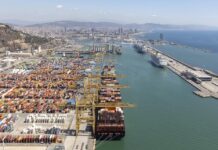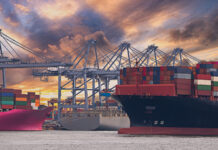
Uncertain trade levels and, consequently, freight volumes have led to an interim report from Australia’s Freight Reform Panel to advise the cutting of government support for a new container facility at Port Kembla.
The Freight Reform Panel, which consists of Dr Kerry Schott AO, Lucio Di Bartolomeo, and Dr Hermione Parsons, published Freight Policy Reform: Interim Directions, this week, and advised Canberra to take a wait-and-see approach to port upgrades.
Activities at both Newcastle and Port Kembla are expected to evolve over the coming years with Kembla developing as a gas receival facility and as a hydrogen hub, while renewable energy imports are expected to feature at Newcastle, where coal volumes have not declined as rapidly as expected and the port has been earmarked as a clean energy export facility.
“Government expenditure to improve port efficiency in relation to containers ought to focus on Port Botany for the foreseeable future,” said the report.
The authors added: “Current government policy is that Port Botany will be the key container port for NSW until it reaches capacity… It is not anticipated that Port Botany will reach capacity for 20 years.”
Federal government is urged not to impose restrictions on port activities, beyond the usual planning and development approval processes, until the direction of development of key industries and their impact on all three facilities is understood better.
“Until that time, it is premature to impose policies to restrict port activities. While these matters develop, the Panel is of the view that Government should not provide additional infrastructure to assist the development of container terminals at the ports at Newcastle and Port Kembla,” concluded the Panel.
New South Wales’ Freight Policy reform programme, which will be developed between the regional and federal governments as well as stakeholders will “ultimately deliver a comprehensive strategic reform agenda and action plan” that optimise freight transport in the state.
“The movement of freight requires an integrated and holistic approach with seamless connections between the different aspects of the supply chain,” said an NSW policy document.
As supply chain requirements are in flux any proposed developments make use of the infrastructure currently available.
The NSW Government has already laid out the guiding policy principles that will inform its decision making in the reform of the various critical supply chains in what a key import and export region of the country.
Key stakeholders will seek to optimise the operations of all the commercial ports in NSW. Moreover, there is a need to support city-based and regional intermodal terminals that will enable the development of other transport infrastructure, the road and rail network.
Freight and supply chain requirements are considered central to transport planning, and the planning authorities will prioritise the industry’s needs when making investment decisions including securing industrial land.
“These guiding principles will be used to inform the development of short, medium and long-term actions that will be driven by the NSW Government in collaboration with industry and the Federal Government,” said the NSW policy document.
Mary Anne Evans
Correspondent at Large





